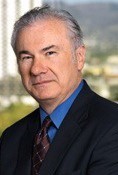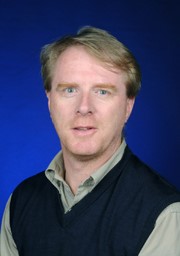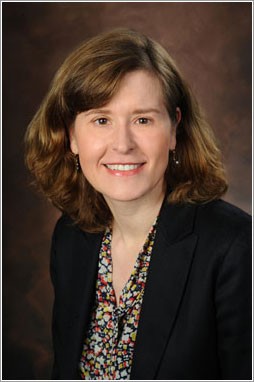The 2016 Conference will follow the highly regarded 2014 conference held in the Sir Paul Reeves Building at AUT, Mayoral Drive, Auckland. Keynotes speakers include David Teece, James K. Galbraith, John Gibson and Janet Currie.
Key Dates:
Wednesday 24th February. First notice of conference sent out
Wednesday 24th February. Portal for abstract submissions opens
Wednesday 23th March. Final notice of conference sent out
Monday 28th March. Conference registration opens
Friday 1st April. Abstracts Due
By Monday 25th April. Notification of acceptances
Monday 16th May. Registration deadline for presenters
Monday 16th May. Deadline for early‐bird registration
Monday 13th June. Full papers due for entries to prizes
Wednesday 29th June. Conference start
Friday 1st July. Conference end

James K. Galbraith holds the Lloyd M. Bentsen Jr. Chair of Government/Business Relations at the Lyndon B. Johnson School of Public Affairs, the University of Texas at Austin. His most recent book, The End of Normal, was published in September, 2014 by Free Press. Other books include Inequality and Instability, and What Everyone Needs to Know About Inequality.
He holds degrees from Harvard (A.B., 1974) and Yale (Ph.D. in Economics, 1981) and won a Marshall Scholarship to King’s College, Cambridge. He has served on the congressional staff, including as Executive Director of the Joint Economic Committee, is chair of Economists for Peace and Security and Senior Scholar at the Levy Economics Institute.
In 2010 he was elected to the Accademia Nazionale dei Lincei. In 2012, he was President of the Association for Evolutionary Economics. He is the 2014 co-winner of the Leontief Prize for advancing the frontiers of economic thought.
https://utip.gov.utexas.edu/JG/
 Professor David J. Teece is an authority on subjects including the theory of the firm and strategic management, the economics of technological change, knowledge management, technology transfer, and antitrust economics and innovation. He has a Ph.D. in economics from the University of Pennsylvania, has held teaching and research positions at Stanford University and Oxford University, and has also received three honorary doctorates. Dr. Teece has testified before Congress on regulatory policy and competition policy, is author of over 200 books and articles, and is the editor of “Industrial & Corporate Change” (Oxford University Press). According to Science Watch, he is the lead author on the most cited article in economics and business worldwide, 1995–2005. He is also one of the top 10 cited scholars in economics and business for the decade, and has been recognized by Accenture as one of the world’s top 50 business intellectuals.
Professor David J. Teece is an authority on subjects including the theory of the firm and strategic management, the economics of technological change, knowledge management, technology transfer, and antitrust economics and innovation. He has a Ph.D. in economics from the University of Pennsylvania, has held teaching and research positions at Stanford University and Oxford University, and has also received three honorary doctorates. Dr. Teece has testified before Congress on regulatory policy and competition policy, is author of over 200 books and articles, and is the editor of “Industrial & Corporate Change” (Oxford University Press). According to Science Watch, he is the lead author on the most cited article in economics and business worldwide, 1995–2005. He is also one of the top 10 cited scholars in economics and business for the decade, and has been recognized by Accenture as one of the world’s top 50 business intellectuals.
https://businessinnovation.berkeley.edu/intellectual-capital/research/
 John Gibson is Professor of Economics at the Waikato Management School. A graduate of Lincoln University, John has a doctorate from Stanford University in the United States. His teaching and research interests are in microeconomics and in the micro econometric aspects of development, labour and the international economy. John is currently a Senior Research Associate at the Motu Economic and Public Policy Research Trust. His other research interests include poverty measurement, where he is a member of an expert group advising the United Nations Statistical Division, the design and analysis of household survey data, and economic development, especially in China and other Asian and Pacific economies.
John Gibson is Professor of Economics at the Waikato Management School. A graduate of Lincoln University, John has a doctorate from Stanford University in the United States. His teaching and research interests are in microeconomics and in the micro econometric aspects of development, labour and the international economy. John is currently a Senior Research Associate at the Motu Economic and Public Policy Research Trust. His other research interests include poverty measurement, where he is a member of an expert group advising the United Nations Statistical Division, the design and analysis of household survey data, and economic development, especially in China and other Asian and Pacific economies.
https://www.mngt.waikato.ac.nz/staff%20List/staffhome.asp?user=JKGIBSON
 Janet Currie is the Henry Putnam Professor of Economics and Public Affairs at Princeton University and the Director of Princeton’s Center for Health and Well Being. She is a member of the Institute of Medicine, a fellow of the American Academy of Arts and Sciences, the American Academy of Political and Social Sciences, and the Econometric Society, as well as past Vice President of the American Economic Association and in-coming President of the Society of Labor Economists. She is on the Board of Reviewing Editors of Science magazine and on the editorial board of the Quarterly Journal of Economics.
Janet Currie is the Henry Putnam Professor of Economics and Public Affairs at Princeton University and the Director of Princeton’s Center for Health and Well Being. She is a member of the Institute of Medicine, a fellow of the American Academy of Arts and Sciences, the American Academy of Political and Social Sciences, and the Econometric Society, as well as past Vice President of the American Economic Association and in-coming President of the Society of Labor Economists. She is on the Board of Reviewing Editors of Science magazine and on the editorial board of the Quarterly Journal of Economics.
Her research focuses on the health and well-being of children including early intervention programs, expansions of public health insurance, public housing, and food and nutrition programs. Her current research focuses on socioeconomic differences in child health, environmental threats to children’s health, and the long term effects of poor health in early childhood.
https://www.princeton.edu/~jcurrie/index.html




